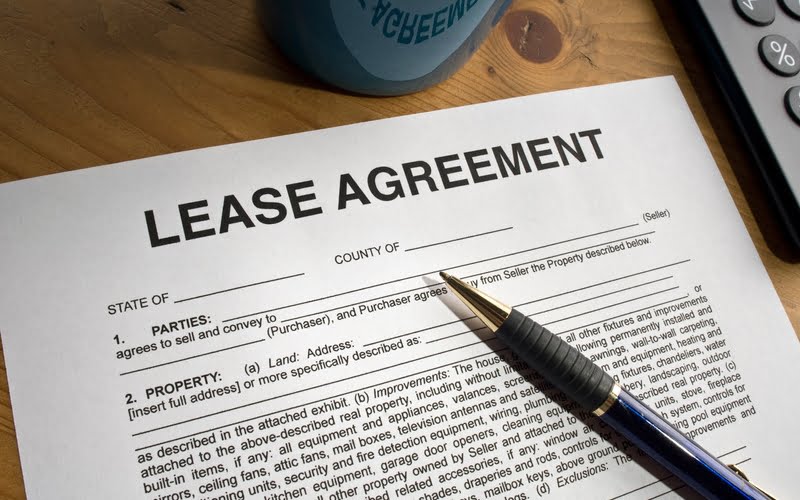Last Updated on March 18, 2024 by Kelvin Nielsen
There are certain situations that allow tenants to break their lease in Arizona without penalty. Including, if starting an active military duty, violation of the lease by the landlord, and domestic violence.
Be that as it may, before breaking the lease and moving out, there are certain requirements you must fulfill. For instance, when moving out due to domestic violence, you must show the landlord proof of status.
With that in mind, here’s everything you need to know when it comes to breaking a lease in Arizona without penalty.
How To Break A Lease In Arizona Without Penalty
As a tenant, there are certain life situations that may occur that may push you to break your lease. From financial hardships, to change in employment, to medical reasons, to unlivable conditions, to landlord harassment, the reasons could be many and varied.
That said, a lease is a contractually binding agreement that runs for a specific period of time. Usually, from six months to a year. And during this time, you are obligated to abide by all terms of the lease agreement. Including, paying rent for the entire duration regardless of where you may be staying.
Consequently, by breaking the lease, you may be liable to paying the landlord a huge sum of money. That is, if they are unable to find a replacement tenant within a reasonable time.
Luckily, there are certain situations that can enable you to break a lease in Arizona without penalty. The only requirement here would be to fulfill the requisite conditions (proof) before moving out.
1. Breaking the Lease to Start Active Military Duty
Your landlord cannot penalize you for doing this thanks to the Servicemembers Civil Relief Act (SCRA). The act protects active members who have relocated due to military service.
Only the following members of the military qualify under the relief act.
- Armed forces
- Activated National Guard
- Commissioned corps of the National Oceanic and Atmospheric Administration
- Commissioned corps of the Public Health Service
But before you can break free from your contractual lease obligations, you must do the following.
- Prove that you signed the lease before entering active duty.
- Prove that the relocation is going to last 90 days or more.
- Serve the landlord with written notice of your intentions to leave. You must also attach the letter from your superiors showing that you have been deployed or received a permanent change of station.
The earliest the lease can end is 30 days after the next rent payment cycle has begun. Suppose, for instance, that rent is always due on the 1st of every month. Then assuming that you delivered the notice on the 15th of September, it therefore means that the earliest you can terminate the lease would be November 1st. (50 U.S.C. § 3955 (2022).)
2. Breaking the Lease Because the Unit is Not Habitable
Almost all U.S. states allow tenants to do this; Arizona isn’t an exception. As a tenant, you have a right to live in a habitable rental property. That is, one that meets the basic health and safety codes.
Some of the minimum conditions the property must meet to be considered habitable include the following.
- Have hot and cold running water.
- A working HVAC equipment.
- Have working plumbing and electrical systems.
- Have proper trash receptacles.
- Safe stairs, floors, and railings.
- Safe fire exits.
- Working smoke and carbon monoxide detectors.
- Any other amenity that the lease mentions.
- Vermin-free premises.
If the property you’re renting doesn’t have all these, it may be considered uninhabitable. Consequently, you may be able to break the lease without penalty.
Also, please note that Arizona law requires that a tenant request a repair in writing. The notice will give the landlord a maximum of 10 days to make the repair that is impacting your health or safety. If the landlord ignores the notice, you can choose to break the lease effective 20 days after writing the notice.
Here is a comprehensive guide on AZ landlords’ obligations when it comes to repairs.
3. Breaking the Lease due to Landlord Harassment
Arizona law guarantees tenants the right to live in peace and quiet enjoyment. As such, it’d be unlawful for your landlord to make your stay uncomfortable through certain harassment acts.
Usually, landlord harassment is meant to force a tenant to abandon their rented premises. It’s illegal. The only way your landlord can evict you from your rented property is through a court order. (Here are other illegal eviction methods your landlord must not use).
The following are telltale signs that your landlord is harassing you.
- The landlord is physically or verbally abusing you.
- The landlord is refusing to make the repairs that you have requested.
- The landlord is discriminating against you on the basis of your race, color, sex, nationality, familial status, or any other protected class.
- The landlord is retaliating against you for exercising a legal right, such as complaining to a local government agency about safety concerns in the property.
If the landlord has done any of these things, you may have a legal right to break your lease without penalty.
4. Breaking the Lease due to Privacy Violation
Your landlord has an obligation to respect your privacy. Generally, they must meet three requirements when looking to enter your rented premises.
One, the landlord must have a legitimate reason for entry. Common reasons for entry include the following:
- To inspect the unit.
- Show the unit to prospective buyers or tenants.
- Repair and maintain the unit.
Two, the landlord must provide proper notice before entry. Specifically, they must provide tenants with a two days’ advance notice before entry. (Ariz. Rev. Stat. Ann. §§ 33-1343(D)).
And three, the entry must be during normal business hours. This is normally between 8 AM and 8 PM.
The only exception to the advance notice requirement and entry times is in case of an emergency.
If the landlord violates your privacy, you could file a complaint with the Arizona Department for Housing. You may also be able to break your lease without penalty.
Here is a comprehensive guide on landlord entry laws in Arizona.
5. Breaking the Lease due to Domestic Violence
Arizona tenants are also able to break their lease due to domestic violence. You must provide the landlord with the following before moving out.
- A written notice requesting to be let out of the lease within the next 30 days.
- Proof of the domestic violence status. (Ariz. Rev. Stat. Ann. §§ 33-1318(A)).
Other Reasons for Breaking a Lease in Arizona without Penalty
You may also be able to break a lease in Arizona without a penalty if any of the following occurs.
- The landlord violates a term of the lease agreement. Just like tenants, landlords have a responsibility of abiding by all terms of the lease agreement. They must not, for instance, illegally raise rent during a fixed-term lease.
- The lease agreement contains an illegal term. For example, a term that discriminates against a tenant based on a protected class, or one that waives the tenant’s right to live in a habitable property.
- The landlord fails to provide you with certain mandatory disclosures. Before moving in, the landlord is required to provide you with certain mandatory disclosures. In Arizona, the landlord must let you know about things like the presence of lead-based paint, educational materials about bed bugs, the purpose of nonrefundable fees, and a copy of the AZ landlord-tenant act.
- You become seriously ill. If you become sick and the illness prevents you from living in your current unit, you may be able to break your lease penalty-free.
Frequently Asked Questions (FAQs): How to Break a Lease in Arizona Without Penalty
Q: How much is it to break a lease in Arizona?
A: Without a legal justification to break your lease, you could owe the landlord a significant amount of money. The amount could be as much as all the rent remaining under the lease.
That said, Arizona Code § 33-1370 requires landlords to make reasonable efforts to re-rent their unit after a tenant breaks the lease. If they are lucky enough to find a replacement tenant quickly, then you may only owe them a fraction of the total rent due under the lease.
So, there is really no straightforward answer when it comes to how much breaking a lease would cost you.
Q: Can you break a lease due to job relocation in Arizona?
A: No! Job relocation isn’t a legal justification to break a lease in Arizona. As such, even if you moved out, you’d still be liable to the terms of the lease agreement. Which, includes paying rent for the entire lease duration.
Other unjustified reasons for breaking a lease in Arizona include the following.
- Moving to a new place.
- Changing jobs.
- Upgrading or downsizing.
- Not liking the landlord.
- Not liking the neighbors.
- Not liking the property.
- Not being able to afford the rent.
- Not wanting to live in the unit anymore.
These won’t relieve you from your landlording obligations no matter how legitimate they may be.
Q: Can you break a lease in Arizona for medical reasons?
A: Yes! You can break a lease in Arizona without penalty if you have a medical condition. Speak with your landlord as soon as you are able to in order to find a solution that is mutually agreeable.
If you’re unable to reach an agreement with your landlord, you may consider filing a complaint with the Arizona Department of Housing.
Q: How long after signing a lease can you back out in Arizona?
A: There is no backing out after signing a lease in Arizona. You’ll still be legally bound to the lease terms even if you decide to change your mind later. In other words, there is no cooling-off period for leases.
Q: Can a landlord break a lease in Arizona?
Certain situations may also force a landlord to break a lease in Arizona, as well. Here is a comprehensive guide on the topic.
Conclusion
Arizona law allows tenants to break their lease without penalty in certain circumstances. Just make sure to notify your landlord and provide any supporting document if necessary.
Disclosure: The content herein isn’t a substitute for advice from a professional attorney. It’s only meant to serve educational purposes. If you have a specific question, kindly seek expert attorney services.
Sources: Servicemembers Civil Relief Act, Ariz. Rev. Stat. Ann. §§ 33-1324, Ariz. Rev. Stat. Ann. §§ 33-1343(D), Ariz. Rev. Stat. Ann. §§ 33-1318(A), Arizona Code § 33-1370, (50 U.S.C. § 3955 (2022), (Ariz. Rev. Stat. § 33-1376 (2022)

Hi, I’m Kelvin Nielsen, an experienced landlord and accomplished real estate lawyer. My focus is on answering your questions about renting in the hopes of making your life as a renter or a landlord a bit easier.







